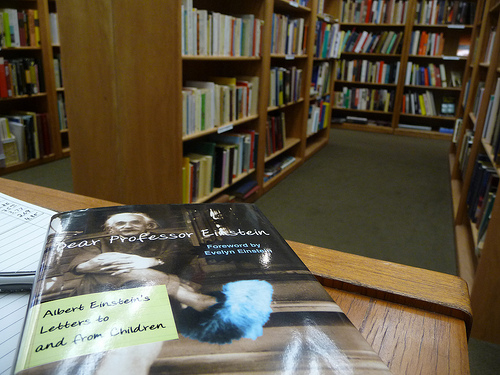Reading is equivalent to thinking with someone else’s head instead of with one’s own. – Arthur Schopenhauer
What does that mean?
Many of us will, from time to time, try to imagine what someone is thinking, or how they came up with an idea. If they’re nearby, you can ask.
If not, you could read a book, either by them, or about them, and try to find the answer in that manner. Many books are written in an effort to explain or persuade, and that can be quite helpful.
If you are lucky, you will find a passage which gives you insight regarding their reasons, methods, and thought process which lead them to a particular conclusion.
In that manner, you are actually seeing inside their head, and thinking with theirs, instead of yours. It doesn’t mean you have to agree with them, but you can at least better understand what they did, and perhaps even why.
Why is expanding our knowledge important?
It’s a strongly held belief of mine that we should always be growing, mentally as well as physically and spiritually. And what would be more interesting than having Physics explained to you by Albert Einstein? Or philosophy by Plato? Both are dead, so the closest we can do is read their works, and try to think with their brains.
Often times the difference between average and brilliance is simply how one sees the same thing everyone else sees, but thinking about it in a different way. If that person then wrote down what it was that got them thinking about the situation in a new way, wouldn’t that be fascinating to read?
And by reading about what was going on in their mind, you get to think using their mind, examine their values, beliefs, and priorities. You get to experience life, or at least that topic, from their head, from their viewpoint. I always find that to be a most interesting journey, both for the specific example, and for the broader implications of their views.
The more spectacular the thought or idea, the more likely it is someone will have written about it. That means some of the greatest, or at least most spectacular, minds of the world are open for us to explore. To someone who is interested in both how and why, that’s an E-Ticket Ride!
Where can I apply this in my life?
I would use this in whatever areas of your life you had some curiosity. If you’re into sports, have you read a biography (preferably an autobiography, or one with extensive interviews) of some of your favorites? What about other notable people in that sport?
What motivated them? What were their fears and hopes? What did they think of the system they came up through? What did they want to see happen to the sport going forward? Did they hope others would come along and beat their records, or were they hoping the sport had reached its pinnacle?
Perhaps you’re more into philosophy than sports (it could happen). Which era, movement, group, or individual do you want to learn more? What books are there which are in their voice, or include extensive info from them directly? Can you read about that, and get inside their head, to see the world through their eyes?
Have you read books about other famous or important people in your life? Perhaps during your time in school, or as something which sounded interesting at the time? How did reading that book change you, and how you looked at the world? How did things change after you thought for a while with someone else’s head?
I find the change in perspective refreshing. While I don’t always agree with the viewpoint or conclusions of the author, it is nice to see the world though different eyes. Sometimes the new way of looking at things is worth the effort to get through the book, as not all books are fun to read.
Does this also apply to fictional people? Have you ever found yourself looking at things with greater attention to detail after reading (or watching) a story with Sherlock Holmes? Even fictional characters can give you a new perspective on the world around you, right?
What interests you? Who piques your curiosity? What do you want to know about their lives, or the decisions they made? What does the world look like through their eyes? How do they approach life and the issues related to it? How do they solve problems or come up with ideas?
Can you think of a person, living or dead, imaginary or real, who could give you a different perspective on life? If you are at a complete loss, you can always start with something simple, like The Art of Happiness by the Dalai Lama.
From: Twitter, @philo_quotes
confirmed at : http://en.wikiquote.org/wiki/Arthur_Schopenhauer search for 4th ‘reading’
Photo by Bev Sykes

